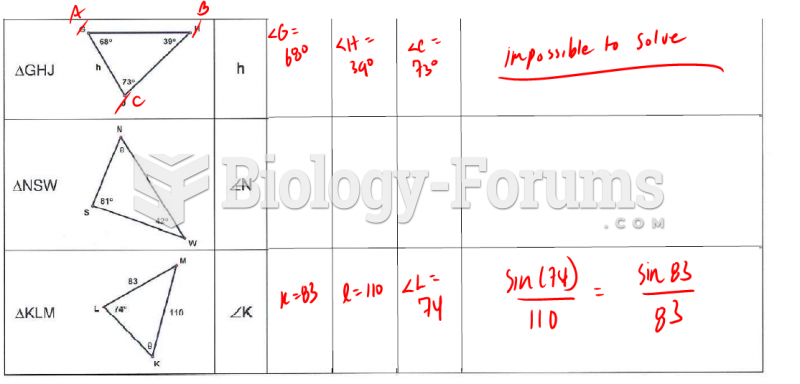|
|
|
According to the CDC, approximately 31.7% of the U.S. population has high low-density lipoprotein (LDL) or "bad cholesterol" levels.
The first documented use of surgical anesthesia in the United States was in Connecticut in 1844.
As many as 28% of hospitalized patients requiring mechanical ventilators to help them breathe (for more than 48 hours) will develop ventilator-associated pneumonia. Current therapy involves intravenous antibiotics, but new antibiotics that can be inhaled (and more directly treat the infection) are being developed.
There are more sensory neurons in the tongue than in any other part of the body.
Drug-induced pharmacodynamic effects manifested in older adults include drug-induced renal toxicity, which can be a major factor when these adults are experiencing other kidney problems.
 Injecting an IV push (bolus) medication; C, another type of needleless syringe and needleless IV acc
Injecting an IV push (bolus) medication; C, another type of needleless syringe and needleless IV acc
 The use of antispasmodics, which block release of Ach or calcium, can result in reduced pain as well ...
The use of antispasmodics, which block release of Ach or calcium, can result in reduced pain as well ...





